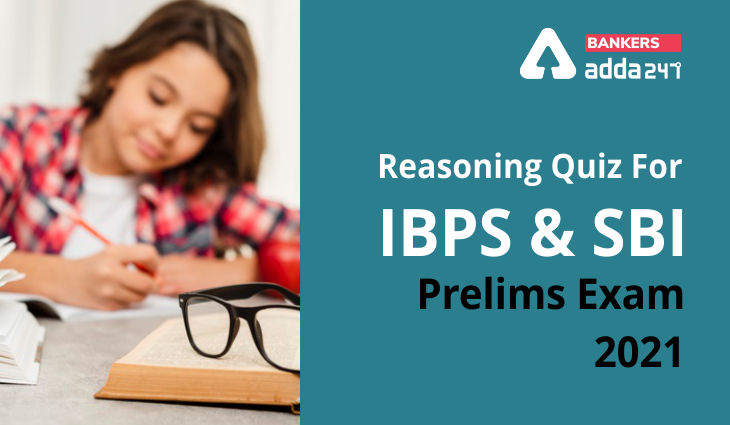Directions (1-5): In these questions, a relationship between different elements is shown in the statements. The statements are followed by two conclusions. Give answer
Q1. Statement: P≤T≤I<U<X, E<O≥P>Z ≥K
Conclusion: I. K<X II. E<U
(a) if only conclusion II is true.
(b) if only conclusion I is true.
(c) if neither conclusion I nor II is true.
(d) if either conclusion I or II is true.
(e) if both conclusions I and II are true.
Q2. Statement: Z<U=O≤A≤M<R, Q<A≤Y<G
Conclusion: I. U≥Q II. Q>O
(a) if both conclusion I and II are true.
(b) if only conclusion I is true.
(c) if neither conclusion I nor II is true.
(d) if either conclusion I or II is true.
(e) if only conclusion II is true.
Q3. Statement: F≤D≤I≥M<X, W<G≤F>B≥K
Conclusion: I. K≥M II. G≤I
(a) if only conclusion II is true.
(b) if either conclusion I or II is true.
(c) if neither conclusion I nor II is true.
(d) if only conclusion I is true.
(e) if both conclusions I and II are true.
Q4. Statement: Z<U≤T≤W<M>S, Q>W≤Y<V
Conclusion: I. V>U II. W>Z
(a) if only conclusion II is true.
(b) if only conclusion I is true.
(c) if neither conclusion I nor II is true.
(d) if either conclusion I or II is true.
(e) if both conclusions I and II are true.
Q5. Statement: M>K<V=U≥Q≤T<N>R
Conclusion: I. M>Q II. V≥R
(a) if only conclusion II is true.
(b) if either conclusion I or II is true.
(c) if neither conclusion I nor II is true.
(d) if only conclusion I is true.
(e) if both conclusions I and II are true
Directions (6-10): Study the following information to answer the given questions:
Q6. Statements: O≤B≥T=D≤J<F>G
Conclusions: I. G<B II.F≥D
(a)Only I is follow
(b)Only II is follow
(c)Either I or II follow
(d)Neither I nor II follow
(e)Both I and II are follow
Q7. Statement: Y= K, Y < H, R ≤ H, R ≤ U
Conclusions: I. H > K II. H = K
(a)Only I is follow
(b)Only II is follow
(c)Either I or II follow
(d)Neither I nor II follow
(e)Both I and II are follow
Q8. Statements: X≥L>A=W<P, A=T≥B<R
Conclusions: I. X≤R II.P>B
(a)Only I is follow
(b)Only II is follow
(c)If either I or II follow
(d) If neither I or II follow
(e)If both I and II follow
Q9. What should be placed in place of question mark(?) in equation B ≤ A ? N ? K ? S to make A > S always follow.
(a) =, >, ≥
(b) =, <, ≥
(c) =, >,<
(d) =, >, ≤
(e) None of these
Q10.Statements: Z > C ≥ B, T = B ≤ V, Q ≥ B
Conclusions: I. C < V II. Z ≤ Q
(a)Only I follows
(b)Only II follows
(c) Either I or II follows
(d) Neither I nor II follows
(e) Both I and II follows
Directions (11-15): In these questions relationship between different elements is shown in the statements. These statements are followed by conclusions. You have to find out which of the conclusions follow or not from the given statements.
Q11. Statements: T < U, L = M, U≤ P, M ≥ T
Conclusions:
I. M > T
II. U > P
III. T = P
IV. P > T
(a) Only I is true
(b) Only III is true
(c) Only IV is true
(d) either III or IV is true
(e) either III or IV and I are true
Q12. Statements: U > G, C ≤ D, F < U, F ≤ D
Conclusions:
I. F > G
II. D > U
III. C < U
IV. D > G
(a) None is true
(b) Only I is true
(c) Only II is true
(d) Only III is true
(e) Only IV is true
Q13. Statements: S < N, Y ≥ H, P > S, N = H
Conclusions:
I. N ≤ Y
II. H > S
III. P > Y
IV. S < Y
(a) Only I, II and III are true
(b) Only I, II and IV are true
(c) Only II, III and IV are true
(d) Only I, III and IV are true
(e) All I, II, III and IV are true
Q14. Statements: X ≤ U, W < V, S ≥ V, S > U
Conclusions:
I. V < U
II. X < S
III. X < V
IV. S > W
(a) Only II and III are true
(b) Only III and IV are true
(c) Only I, III and IV are true
(d) All I, II, III and IV are true
(e) Only II and IV are true.
Q15. Statements: H ≤ L, H < F, M > L, C ≥ F,
Conclusions:
I. F > M
II. C ≥ L
III. M > F
IV. C > H
(a) Only I and II are true
(b) Only I is true
(c) Only III and IV are true
(d) Only III is true
(e) Only IV is true
Practice More Questions of Reasoning for Competitive Exams:
Reasoning for Competitive Exams |
Reasoning Ability Quiz For SBI, IBPS Prelims 2021- 7th March |
Reasoning Ability Quiz For SBI, IBPS Prelims 2021- 6th March |
Study Plan for IBPS and SBI Exams 2021 |
Solutions
S1. Ans.(b)
Sol.
I. K<X(true)
II. E<U(false)
S2. Ans.(d)
Sol.
I. U≥Q(false)
II. Q>O(false)
S3. Ans.(a)
Sol.
I. K≥M(false)
II. G≤I(true)
S4. Ans.(e)
Sol.
I. V>U(true)
II. W>Z(true)
S5. Ans.(c)
Sol.
I. M>Q(false)
II. V≥R(false)
S6. Ans. (d)
S7. Ans. (a)
S8. Ans. (b)
S9. Ans. (a)
S10. Ans. (d)
S11. Ans.(c)
S12. Ans.(a)
S13. Ans (b)
S14. Ans.(e)
S15. Ans.(e)
Practice with Online Test Series for SBI and IBPS Prelims 2021:
Click Here to Register for Bank Exams 2020 Preparation Material




 GA Capsule for SBI Clerk Mains 2025, Dow...
GA Capsule for SBI Clerk Mains 2025, Dow...
 The Hindu Review October 2022: Download ...
The Hindu Review October 2022: Download ...
 IBPS PO Apply Online 2025, Online Applic...
IBPS PO Apply Online 2025, Online Applic...


